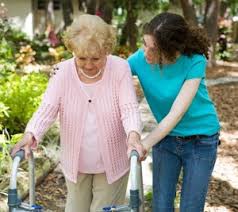On the morning of September 10, 2005, my grandmother was too weak to stand and was transported to the nearest Emergency center. We learned that she had suffered a paralytic stroke. She had Diabetes. She could not get medical insurance to get treated in USA as she was on a tourist visa. That’s when she was flown back immediately to India to get the required medical help. After hospitalization and tests, reports indicated that she had 95% blockage in right carotid artery. In addition, her hypertension made both treatment and recovery very difficult. She was hospitalized for several days and much against her wishes, angioplasty was done.
I was first US citizen in the immigrant family and I enjoyed school, swimming and playing piano. In 2006, when I was ten years old, my family decided to move back to India to take care of my grandmother. I loved her very much and strove to learn more about her condition by accompanying her on every doctor’s visit, discussing about her prescription drugs and watching her recover. She suffered a hemorrhage in 2010 and this time it was fatal.
In the same year, when my grandfather was diagnosed with Schizophrenia, it proved to be the biggest challenge for my entire family. There were days when my grandfather would sneakingly walk out of the house in the middle of the night and the whole family would be on the streets searching for him, or when my dad would be driving to a particular coffee house because my grandfather’s hallucinations of a friend desperately waiting there.
The chronic illness in my family impacted me and taught me several valuable lessons:
- I grew up watching my grandparents suffer in silence. I noticed how their mental and physical stability was getting worse.People with chronic illness need constant help from their families for attending doctor appointments, take medications and lead a normal day to day life.
- Mere treatment is not always helpful. People with chronic illness need attention, love and support.
- People living around the ill people are the most affected. My dad’s time was completely split between his father and his job, nothing much left for his family or himself. In fact, he choose a job that would enable him to take care of his father personally without having to send him to a mental asylum.
- My family learnt ways to make each other happy and take one day at a time. My mom was the pillar of the family who took care of every need and made sure kids were not disturbed.
- Taking my grandparents for a walk and serving them or helping my dad in his difficult times gave me an opportunity for accomplishment and personal growth. I developed an empathy for the suffering and reinforced my single-minded commitment to research and medicine. I have been involved in research for over an year now and hope to make type I Diabetes, a more manageable disease.
- It is very important to lead a healthy lifestyle taking out time for exercise,gratitude and social interaction. Having a support group also helps develop personal strengths and resilience, both of which are needed to combat this illness.
Originally published at medium.com


